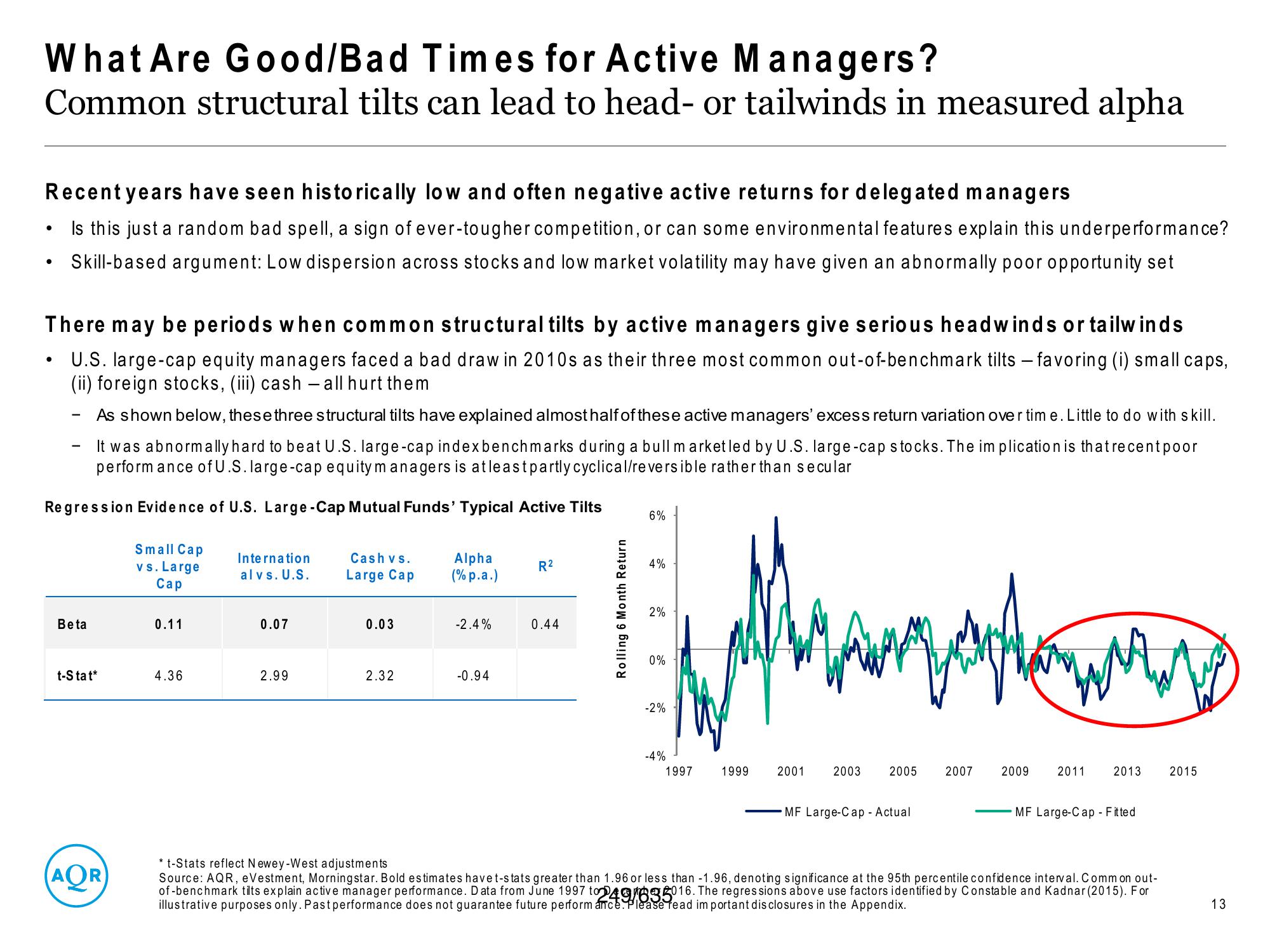Active and Passive Investing
What Are Good/Bad Times for Active Managers?
Common structural tilts can lead to head- or tailwinds in measured alpha
Recent years have seen historically low and often negative active returns for delegated managers
• Is this just a random bad spell, a sign of ever-tougher competition, or can some environmental features explain this underperformance?
Skill-based argument: Low dispersion across stocks and low market volatility may have given an abnormally poor opportunity set
There may be periods when common structural tilts by active managers give serious headwinds or tailwinds
U.S. large-cap equity managers faced a bad draw in 2010s as their three most common out-of-benchmark tilts - favoring (i) small caps,
(ii) foreign stocks, (iii) cash - all hurt them
●
As shown below, these three structural tilts have explained almost half of these active managers' excess return variation over time. Little to do with skill.
It was abnormally hard to beat U.S. large-cap indexbenchmarks during a bull market led by U.S. large-cap stocks. The implication is that recentpoor
performance of U.S.large-cap equity managers is at least partly cyclical/reversible rather than secular
Regression Evidence of U.S. Large-Cap Mutual Funds' Typical Active Tilts
Beta
t-Stat*
AQR
Small Cap
vs. Large
Cap
0.11
4.36
Internation
al vs. U.S.
0.07
2.99
Cash vs.
Large Cap
0.03
2.32
Alpha
(% p.a.)
-2.4%
-0.94
R²
0.44
Rolling 6 Month Return
6%
4%
2%
0%
-2%
-4%
1997
Минзорати
1999
2001
2003
2005
MF Large-Cap - Actual
2007
2009
2011
2013
MF Large-Cap-Fitted
*t-Stats reflect Newey-West adjustments
Source: AQR, eVestment, Morningstar. Bold estimates have t-stats greater than 1.96 or less than -1.96, denoting significance at the 95th percentile confidence interval. Common out-
of-benchmark tilts explain active manager performance. Data from June 1997 to 4935016. The regressions above use factors identified by Constable and Kadnar (2015). For
illustrative purposes only. Past performance does not guarantee future performance. Please read important disclosures in the Appendix.
2015
13View entire presentation